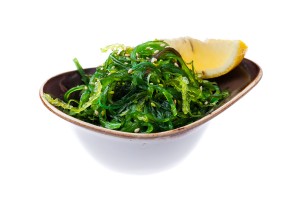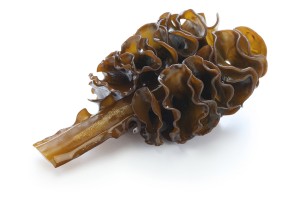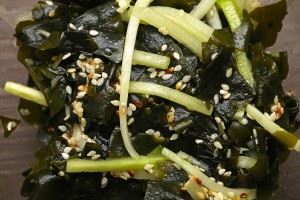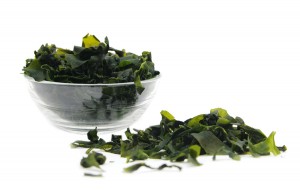Kandace Stephenson and Martha M Grout, MD, MD(H)
Stem cell therapies have been shown to heal joint, tendon and rotator cuff injuries as they have been used by athletes for many years. Conventional therapy requires some form of surgery to repair the knee, shoulder, etc. further requiring time off to heal, plus a multitude of medications to relieve pain as well as prevent future infections. Stem-cell therapy requires very healing time and no heavy anesthetics. Our patients can often return to work the following day.
Both adult and embryonic stem cells have the capability of differentiating into different specialized tissues. The differentiation process is crucial in stem cell therapy, as we want the stem cells to go to the correct tissues in order for the therapy to work as we intend. Refer to our article, "Stem cells- Fountain of Youth? Or scam of the century?" to learn more about the benefits of stem cell therapy. [1]
How do we help our bodies improve the function of our stem cells? There are lots of ways, which we will discuss in future articles.
 One way is by eating seaweed - yes, that same seaweed that washes up on
the beach when you go to the ocean. Seaweed contains a very important
molecule called fucoidan.
One way is by eating seaweed - yes, that same seaweed that washes up on
the beach when you go to the ocean. Seaweed contains a very important
molecule called fucoidan.
Fucoidan is a long chain molecule that has long been studied for its miracle anti-aging properties that is prevalent in Japanese culture. Japanese culture emphasizes the importance of nutrition and the belief that "food is medicine", much unlike the Western Diet that places pharmaceuticals on top, and nutrition hidden somewhere beneath. Specifically, Okinawa inhabitants have a diet rich in Wakame seaweed, which contains the highest concentrations of Fucoidan. Okinawa is also known for its high concentration of centenarians (people who are at least a century old), which researchers believe is linked to their fucoidan-rich diet. The anti-aging effects are associated with Fucoidan's remarkable ability to facilitate tissue regeneration, immune function as well as improving cell-to- cell communication. Not only is fucoidan known for its anti-aging effects, it is also believed to combat cancer, metabolic syndrome and other degenerative disorders. [2]
With stem cell therapy, there is always the risk that the adult stem cells could migrate to other areas of the body unintentionally. However, the daily use of fucoidan has been proven to increase mobilization of stem cells to the appropriate area/ site of injury. [3] Not only can fucoidan point the stem cells in the proper direction, it has also shown to improve the stem cells' survival during the differentiation process. One study conducted on mice found that the daily ingestion of fucoidan prevented stem cell death by interfering with apoptosis-associated proteins (proteins that induce cell death). [4] Fucoidan can protect healthy tissues in the body, while also having the ability to facilitate healing and tissue regeneration.
 Fucoidan is found almost exclusively found in brown seaweeds, however Wakame
or mekabu contains U.pinnatifida-derived fucoidan, which is the most studied
by scientists and is seen to be especially effective. Researchers have
found it contains properties such as inducing apoptosis in cancer cells,
as well as containing antiviral properties that can fight off viral infections.
U. pinnatifida fucoidan provides strong immune system support by destroying
invading pathogens due to its ability to increase growth of T cells, a
white blood cell that plays a central role in the innate immune system.[6]
Fucoidan also enhances the excretion of these invaders by its ability
to bind to foreign toxins, completely removing these toxins from the body.
Fucoidan is found almost exclusively found in brown seaweeds, however Wakame
or mekabu contains U.pinnatifida-derived fucoidan, which is the most studied
by scientists and is seen to be especially effective. Researchers have
found it contains properties such as inducing apoptosis in cancer cells,
as well as containing antiviral properties that can fight off viral infections.
U. pinnatifida fucoidan provides strong immune system support by destroying
invading pathogens due to its ability to increase growth of T cells, a
white blood cell that plays a central role in the innate immune system.[6]
Fucoidan also enhances the excretion of these invaders by its ability
to bind to foreign toxins, completely removing these toxins from the body.

Mekabu
Mekabu Fucoidan is capable of inhibiting blood clot formation and thereby reducing blood pressure and the incidence of strokes and heart attacks.[7] Fucoidan has also been linked to the contribution to the health and maintenance in cardiac muscle (specifically the twitch muscles that regulate the heart beat). [8]More recent studies also suggest that fucoidan are a potential candidate for promoting bone regeneration.

Wakame Salad
In a study conducted on diabetic rats, Fucoidan intake proved to reduce blood sugar levels and improve early diabetic nephropathy. [5]These findings lead researchers to believe there are potential benefits for diabetic patients in maintaining normal blood flow, and thus prevent or delay the progession of diabetic kidney complications. These findings are not unique in terms of Chinese medicines that have been utilizing the benefits of fucoidan for over a thousand years to cure symptoms of kidney disease.
 So why haven't we all heard about the benefits of Fucoidan already?
Although there are many articles about Fucoidan's abilities, stem
cell therapy and Fucoidan use is still in its infancy. Now that researchers
are noticing its benefits in conjunction with stem cell therapy, we look
forward to seeing many more extensive studies on this miracle food.
So why haven't we all heard about the benefits of Fucoidan already?
Although there are many articles about Fucoidan's abilities, stem
cell therapy and Fucoidan use is still in its infancy. Now that researchers
are noticing its benefits in conjunction with stem cell therapy, we look
forward to seeing many more extensive studies on this miracle food.
How can you add Fucoidan to your diet? We have provided some taste-approved recipes with this article so you can achieve the full benefits of fucoidan along with your therapy.
Click to have the recipes sent to your email.
References:
[1] Stem Cells- Fountain of Youth? Or scam of the century? Arizona Center for Advanced Medicine. [2] Fitton JH. Therapies from Fucoidan; Multifunctional Marine Polymers. Marine Drugs 9.10 (2011): 1731-60.How do we help our bodies improve the function of our stem cells? There are lots of ways, which we will discuss in future articles.
 One way is by eating seaweed - yes, that same seaweed that washes up on
the beach when you go to the ocean. Seaweed contains a very important
molecule called fucoidan.
One way is by eating seaweed - yes, that same seaweed that washes up on
the beach when you go to the ocean. Seaweed contains a very important
molecule called fucoidan.
Fucoidan is a long chain molecule that has long been studied for its miracle anti-aging properties that is prevalent in Japanese culture. Japanese culture emphasizes the importance of nutrition and the belief that "food is medicine", much unlike the Western Diet that places pharmaceuticals on top, and nutrition hidden somewhere beneath. Specifically, Okinawa inhabitants have a diet rich in Wakame seaweed, which contains the highest concentrations of Fucoidan. Okinawa is also known for its high concentration of centenarians (people who are at least a century old), which researchers believe is linked to their fucoidan-rich diet. The anti-aging effects are associated with Fucoidan's remarkable ability to facilitate tissue regeneration, immune function as well as improving cell-to- cell communication. Not only is fucoidan known for its anti-aging effects, it is also believed to combat cancer, metabolic syndrome and other degenerative disorders. [2]
With stem cell therapy, there is always the risk that the adult stem cells could migrate to other areas of the body unintentionally. However, the daily use of fucoidan has been proven to increase mobilization of stem cells to the appropriate area/ site of injury. [3] Not only can fucoidan point the stem cells in the proper direction, it has also shown to improve the stem cells' survival during the differentiation process. One study conducted on mice found that the daily ingestion of fucoidan prevented stem cell death by interfering with apoptosis-associated proteins (proteins that induce cell death). [4] Fucoidan can protect healthy tissues in the body, while also having the ability to facilitate healing and tissue regeneration.
 Fucoidan is found almost exclusively found in brown seaweeds, however Wakame
or mekabu contains U.pinnatifida-derived fucoidan, which is the most studied
by scientists and is seen to be especially effective. Researchers have
found it contains properties such as inducing apoptosis in cancer cells,
as well as containing antiviral properties that can fight off viral infections.
U. pinnatifida fucoidan provides strong immune system support by destroying
invading pathogens due to its ability to increase growth of T cells, a
white blood cell that plays a central role in the innate immune system.[6]
Fucoidan also enhances the excretion of these invaders by its ability
to bind to foreign toxins, completely removing these toxins from the body.
Fucoidan is found almost exclusively found in brown seaweeds, however Wakame
or mekabu contains U.pinnatifida-derived fucoidan, which is the most studied
by scientists and is seen to be especially effective. Researchers have
found it contains properties such as inducing apoptosis in cancer cells,
as well as containing antiviral properties that can fight off viral infections.
U. pinnatifida fucoidan provides strong immune system support by destroying
invading pathogens due to its ability to increase growth of T cells, a
white blood cell that plays a central role in the innate immune system.[6]
Fucoidan also enhances the excretion of these invaders by its ability
to bind to foreign toxins, completely removing these toxins from the body.

Mekabu
Mekabu Fucoidan is capable of inhibiting blood clot formation and thereby reducing blood pressure and the incidence of strokes and heart attacks.[7] Fucoidan has also been linked to the contribution to the health and maintenance in cardiac muscle (specifically the twitch muscles that regulate the heart beat). [8]More recent studies also suggest that fucoidan are a potential candidate for promoting bone regeneration.

Wakame Salad
In a study conducted on diabetic rats, Fucoidan intake proved to reduce blood sugar levels and improve early diabetic nephropathy. [5]These findings lead researchers to believe there are potential benefits for diabetic patients in maintaining normal blood flow, and thus prevent or delay the progession of diabetic kidney complications. These findings are not unique in terms of Chinese medicines that have been utilizing the benefits of fucoidan for over a thousand years to cure symptoms of kidney disease.
 So why haven't we all heard about the benefits of Fucoidan already?
Although there are many articles about Fucoidan's abilities, stem
cell therapy and Fucoidan use is still in its infancy. Now that researchers
are noticing its benefits in conjunction with stem cell therapy, we look
forward to seeing many more extensive studies on this miracle food.
So why haven't we all heard about the benefits of Fucoidan already?
Although there are many articles about Fucoidan's abilities, stem
cell therapy and Fucoidan use is still in its infancy. Now that researchers
are noticing its benefits in conjunction with stem cell therapy, we look
forward to seeing many more extensive studies on this miracle food.
How can you add Fucoidan to your diet? We have provided some taste-approved recipes with this article so you can achieve the full benefits of fucoidan along with your therapy.
Click to have the recipes sent to your email.
References:
[1] Stem Cells- Fountain of Youth? Or scam of the century? Arizona Center for Advanced Medicine.With stem cell therapy, there is always the risk that the adult stem cells could migrate to other areas of the body unintentionally. However, the daily use of fucoidan has been proven to increase mobilization of stem cells to the appropriate area/ site of injury. [3] Not only can fucoidan point the stem cells in the proper direction, it has also shown to improve the stem cells' survival during the differentiation process. One study conducted on mice found that the daily ingestion of fucoidan prevented stem cell death by interfering with apoptosis-associated proteins (proteins that induce cell death). [4] Fucoidan can protect healthy tissues in the body, while also having the ability to facilitate healing and tissue regeneration.
 Fucoidan is found almost exclusively found in brown seaweeds, however Wakame
or mekabu contains U.pinnatifida-derived fucoidan, which is the most studied
by scientists and is seen to be especially effective. Researchers have
found it contains properties such as inducing apoptosis in cancer cells,
as well as containing antiviral properties that can fight off viral infections.
U. pinnatifida fucoidan provides strong immune system support by destroying
invading pathogens due to its ability to increase growth of T cells, a
white blood cell that plays a central role in the innate immune system.[6]
Fucoidan also enhances the excretion of these invaders by its ability
to bind to foreign toxins, completely removing these toxins from the body.
Fucoidan is found almost exclusively found in brown seaweeds, however Wakame
or mekabu contains U.pinnatifida-derived fucoidan, which is the most studied
by scientists and is seen to be especially effective. Researchers have
found it contains properties such as inducing apoptosis in cancer cells,
as well as containing antiviral properties that can fight off viral infections.
U. pinnatifida fucoidan provides strong immune system support by destroying
invading pathogens due to its ability to increase growth of T cells, a
white blood cell that plays a central role in the innate immune system.[6]
Fucoidan also enhances the excretion of these invaders by its ability
to bind to foreign toxins, completely removing these toxins from the body.
Mekabu
Mekabu Fucoidan is capable of inhibiting blood clot formation and thereby reducing blood pressure and the incidence of strokes and heart attacks.[7] Fucoidan has also been linked to the contribution to the health and maintenance in cardiac muscle (specifically the twitch muscles that regulate the heart beat). [8]More recent studies also suggest that fucoidan are a potential candidate for promoting bone regeneration.
Wakame Salad
In a study conducted on diabetic rats, Fucoidan intake proved to reduce blood sugar levels and improve early diabetic nephropathy. [5]These findings lead researchers to believe there are potential benefits for diabetic patients in maintaining normal blood flow, and thus prevent or delay the progession of diabetic kidney complications. These findings are not unique in terms of Chinese medicines that have been utilizing the benefits of fucoidan for over a thousand years to cure symptoms of kidney disease.
 So why haven't we all heard about the benefits of Fucoidan already?
Although there are many articles about Fucoidan's abilities, stem
cell therapy and Fucoidan use is still in its infancy. Now that researchers
are noticing its benefits in conjunction with stem cell therapy, we look
forward to seeing many more extensive studies on this miracle food.
So why haven't we all heard about the benefits of Fucoidan already?
Although there are many articles about Fucoidan's abilities, stem
cell therapy and Fucoidan use is still in its infancy. Now that researchers
are noticing its benefits in conjunction with stem cell therapy, we look
forward to seeing many more extensive studies on this miracle food.
How can you add Fucoidan to your diet? We have provided some taste-approved recipes with this article so you can achieve the full benefits of fucoidan along with your therapy.
Click to have the recipes sent to your email.
References:
[1] Stem Cells- Fountain of Youth? Or scam of the century? Arizona Center for Advanced Medicine.
[2] Fitton JH. Therapies from Fucoidan; Multifunctional Marine Polymers. Marine Drugs 9.10 (2011): 1731-60.
[3] Irhimeh MR., Fitton L. Fucoidan ingestion increases the expression of CXCR4 on human CD34+ cells. Journal for Hematology, Stem Cell Biology and Transplantation 35.6 (2007): 989-994.
[4] Han YS, Lee JH et al. Fucoidan protects mesenchymal stem cells against oxidative stress and enhances vascular regeneration in a murine hindlimb ischemia model. International Journal of Cardiology 198 (2015): 187-195.
[5] Wang J, Liu H, et al. The Protective Effect of Fucoidan in Rats with Streptozotocin-Induced Diabetic Nephropathy. Marine Drugs 12.6 (2014): 3292-3306.
[6] Maruyama H, Tamauchi H, et al. The role of NK cells in antitumor activity of dietary fucoidan from Undaria pinnatifida sporophylls (Mekabu). Planta Medica 72.15 (2006): 1415-1417.
[7] Shanmugam M, Mody KH. Heparinoid-active sulphated polysachharides from marine algae as potential blood anticoagulant agents.” Marine Algae and Marine Environment Discipline, Central Salt and Marine Chemicals Research Institute 79.12 (2000): 1672-83.
[8] Thomes P, Rajendran M, et al. Cardioprotective activity of Cladosiphon okamuranus fucoidan againsr isoproterenol induced myocardial infarction in rats. Phytomedicine 18.1 (2010): 52-57.
